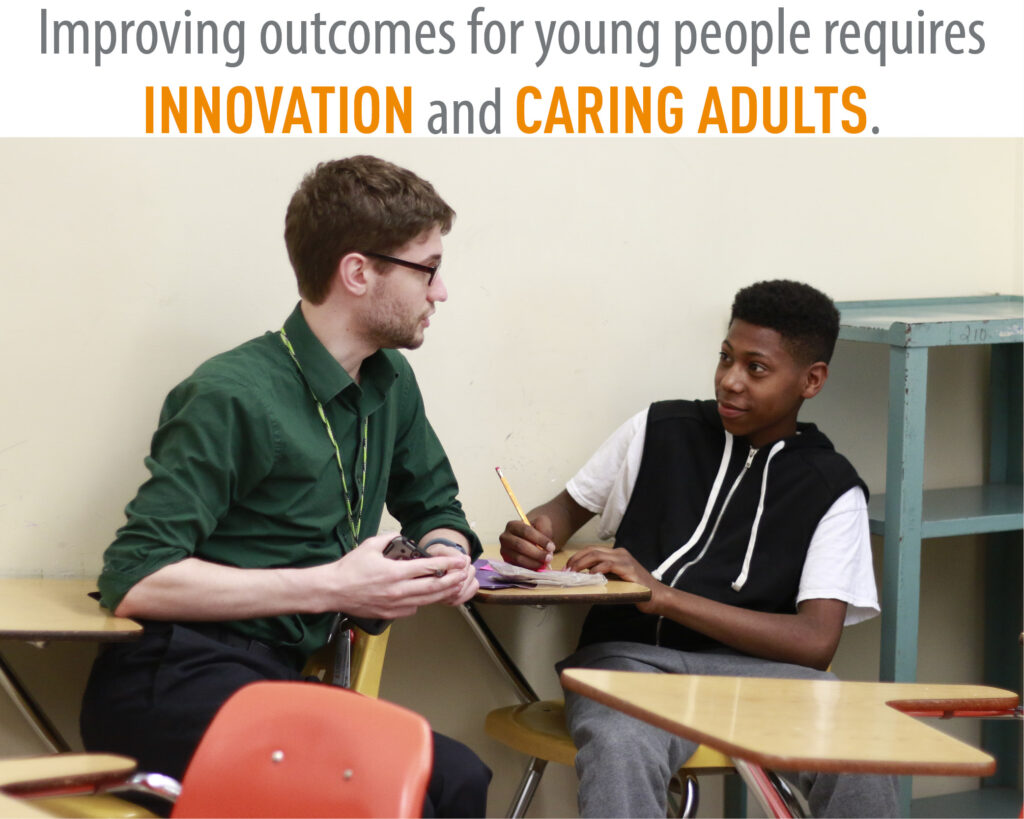In 2015, Wyman joined the Susan Crown Exchange (SCE) in a collaborative effort, known as the Social-Emotional Learning Challenge, to identify best practices for the development of social-emotional skills, otherwise known as skills needed to compete in the 21st century. The challenge converged researchers and eight youth-serving organizations across the nation.
The effort resulted in a formal collection of proven practices and curriculum that adults can use to help youth build social-emotional skills, including emotion management, empathy, teamwork, responsibility, initiative and problem-solving. These learnings have been collected in a one of a kind field guide called Preparing Youth to Thrive: Promising Practices in Social and Emotional Learning.
Wyman was selected from a pool of over 250 youth organizations across the country to participate in the study. Wyman’s nationally recognized Teen Outreach Program® (TOP®) provided insights to help other organizations replicate strategies in their own organizations.
Dr. Karen Guskin, Wyman senior vice president of Research and Learning, leads this department’s innovative work, such as Wyman’s participation in the Social-Emotional Learning Challenge, to reach more youth, more effectively, and spark national dialogue to close the opportunity gap for youth across the US.
The following is Dr. Guskin’s insight on why innovation is critical to improving the lives of the nation’s teens:
Question: What is positive youth development?
Positive youth development promotes the STRENGTHS OF YOUTH and POSITIVE OUTCOMES through relationships, support and opportunities. Instead of focusing on problem behaviors and risks, we see opportunities for YOUNG PEOPLE TO THRIVE, no matter their personal history or circumstances.
Wyman’s core beliefs about young people are rooted in positive youth development.
Every young person:
- Has the POTENTIAL to succeed and lead, regardless of life circumstances.
- Deserves to have connections with caring, competent adults who EMPOWER them to share their VOICE and ENGAGE WITH THEIR COMMUNITIES.
- Deserves EQUAL ACCESS to quality education, work and life experiences—ensuring a better future and better world.
Our positive youth development programming for teens is deeply informed by research, our knowledge of adolescent development and 118 years of experience working directly with youth. We commit to this approach so that we can achieve measurable impact for youth.
Positive youth development and social-emotional skill development are deeply interconnected. Wyman’s Framework for Thriving Youth depicts caring, responsive, knowledgeable adults as the foundational support for youth. Relationships with adults help youth build social-emotional skills, develop a positive sense of self and make connections to others and their world. This leads to healthy behaviors and relationships, educational success and life and leadership skills.
The federal government actually has an interagency working group on youth development programs. This group has come up with a comprehensive definition for the approach: Positive youth development is an intentional, pro-social approach that:
- Engages youth within their communities, schools, organizations, peer groups and families in a manner that is productive and constructive.
- Recognizes, utilizes and enhances youths’ strengths.
- And, promotes positive outcomes for young people by providing opportunities, fostering positive relationships and furnishing the support needed to build on their leadership strengths.
Question: From your steeped perspective, what is the biggest takeaway from the SCE work?
The SCE work highlighted the range of social-emotional skills, as well as the ways adults can support the development of those skills. It provides best practices for how adults can more explicitly support the development of empathy and emotion management. In fact, we’ve incorporated all of these learnings in the update to TOP curriculum, which will we will roll out to our partners across the nation in 2017. Youth-serving practitioners can download the guide at selpractices.org.


